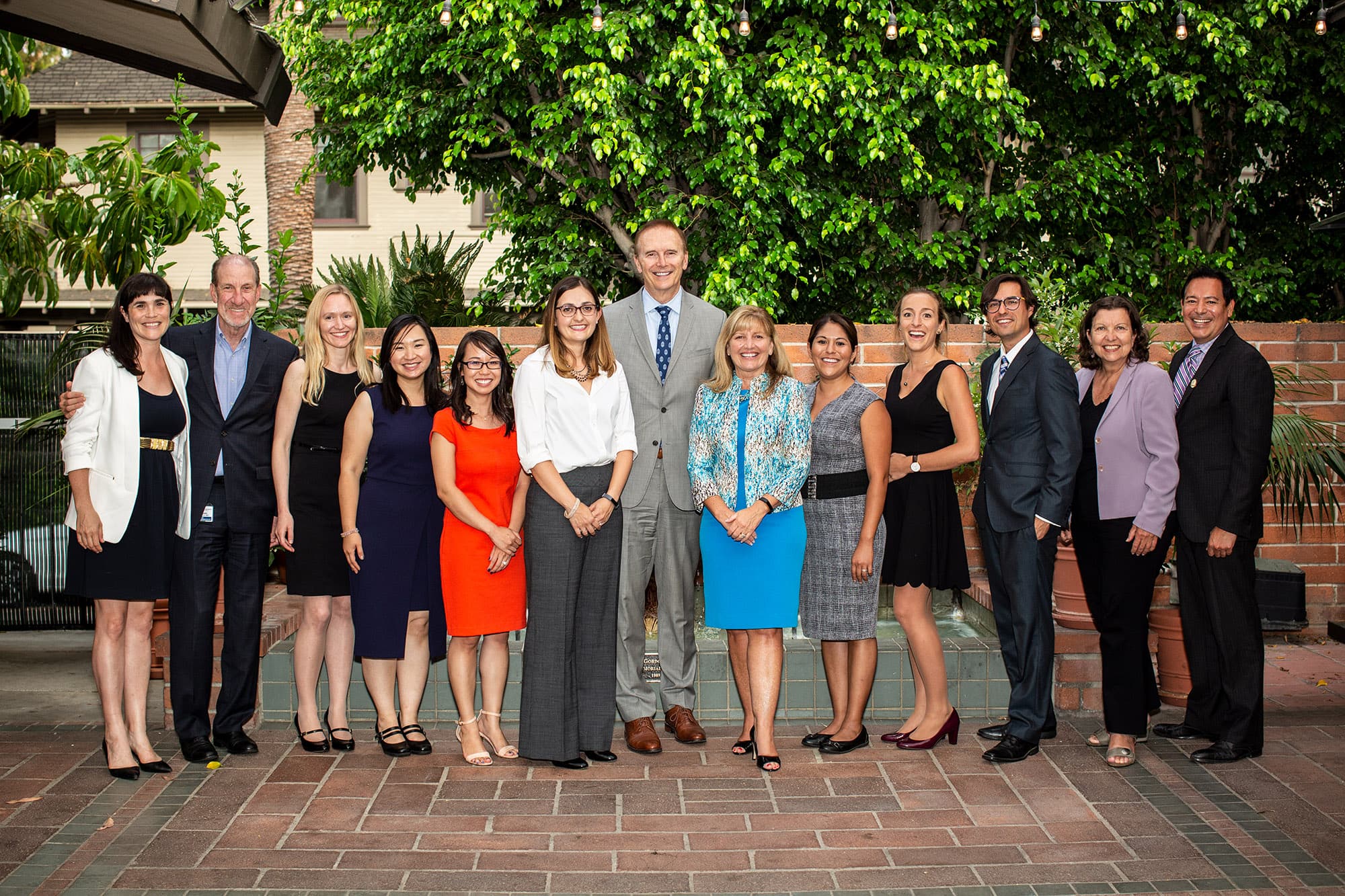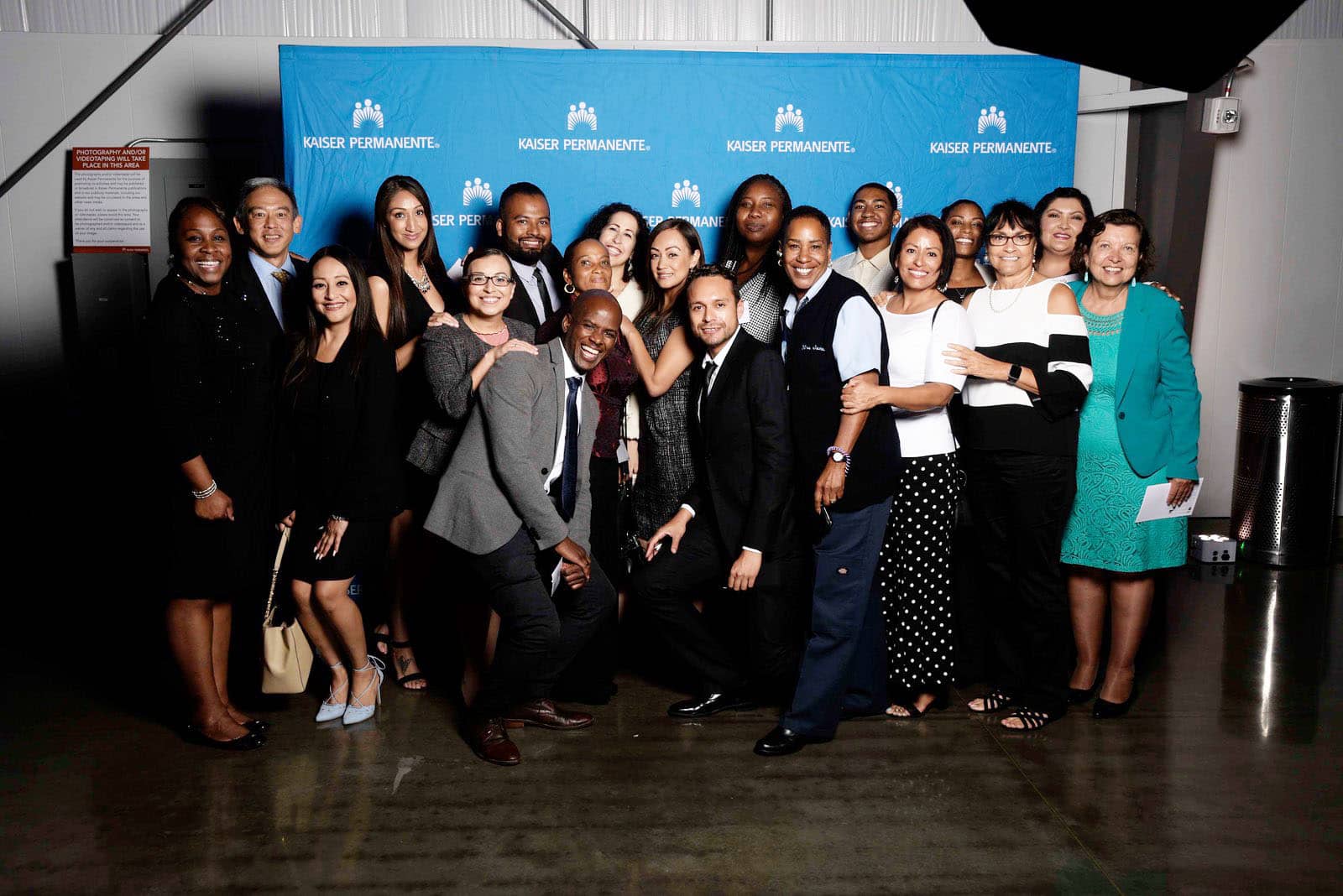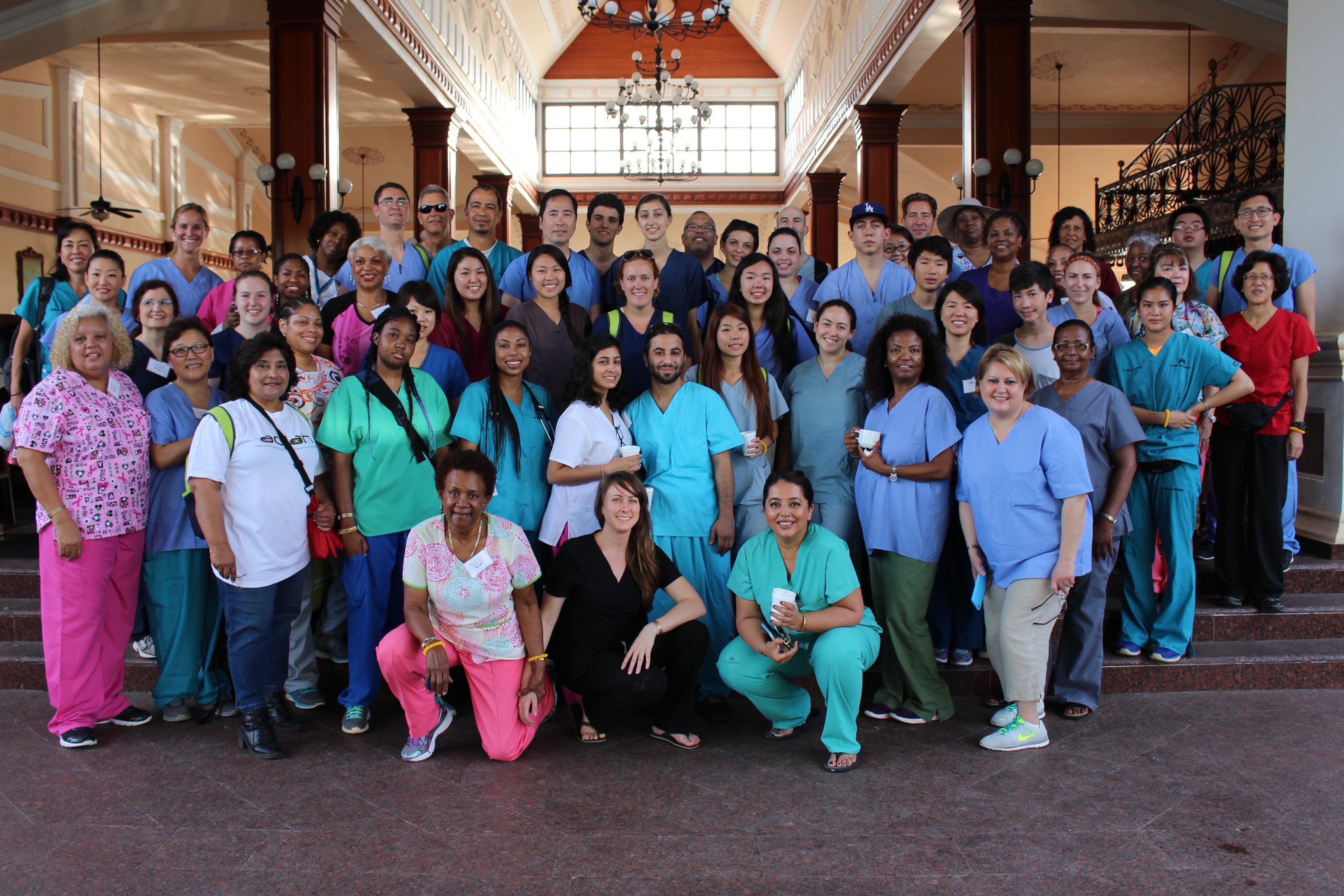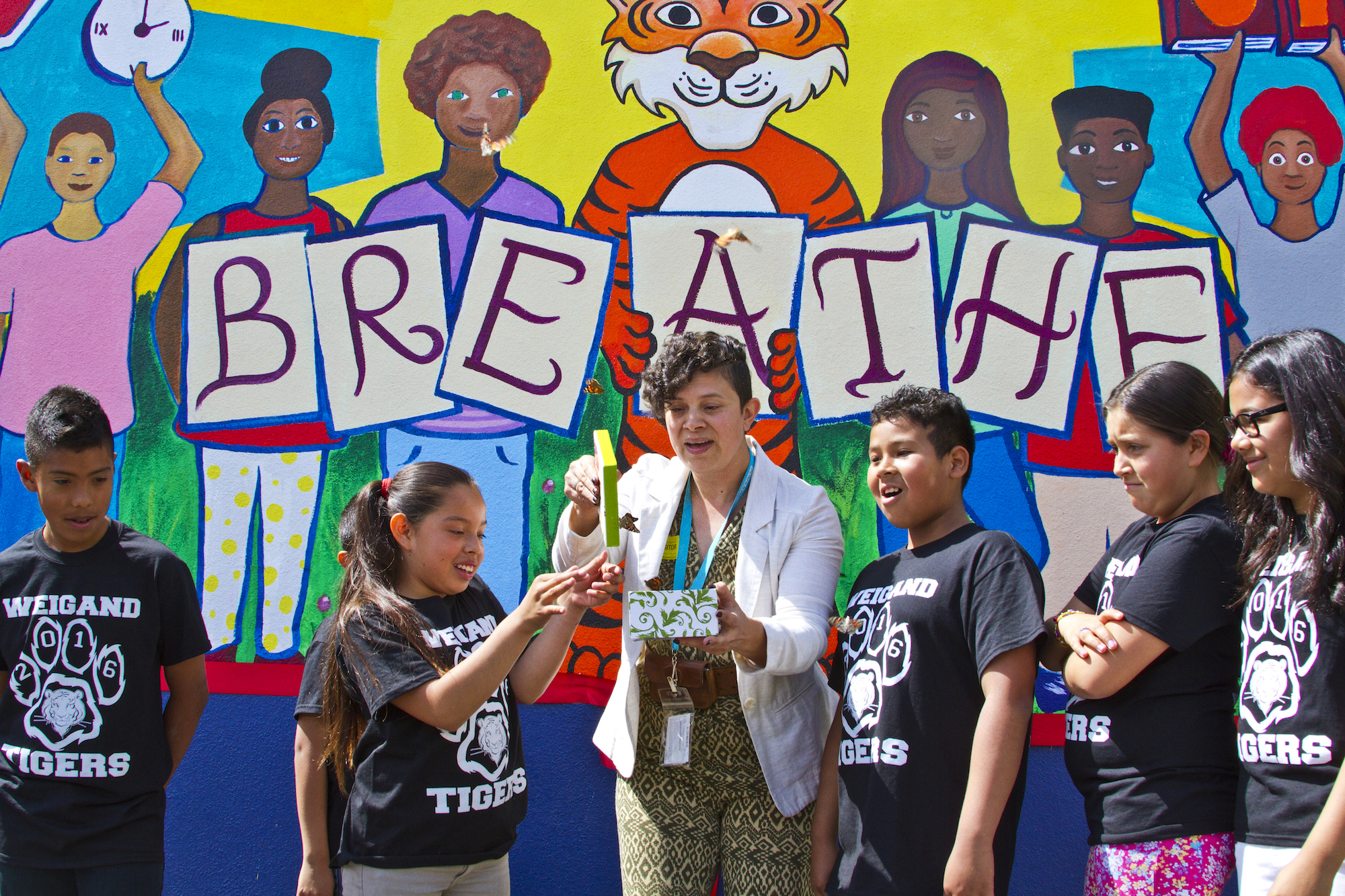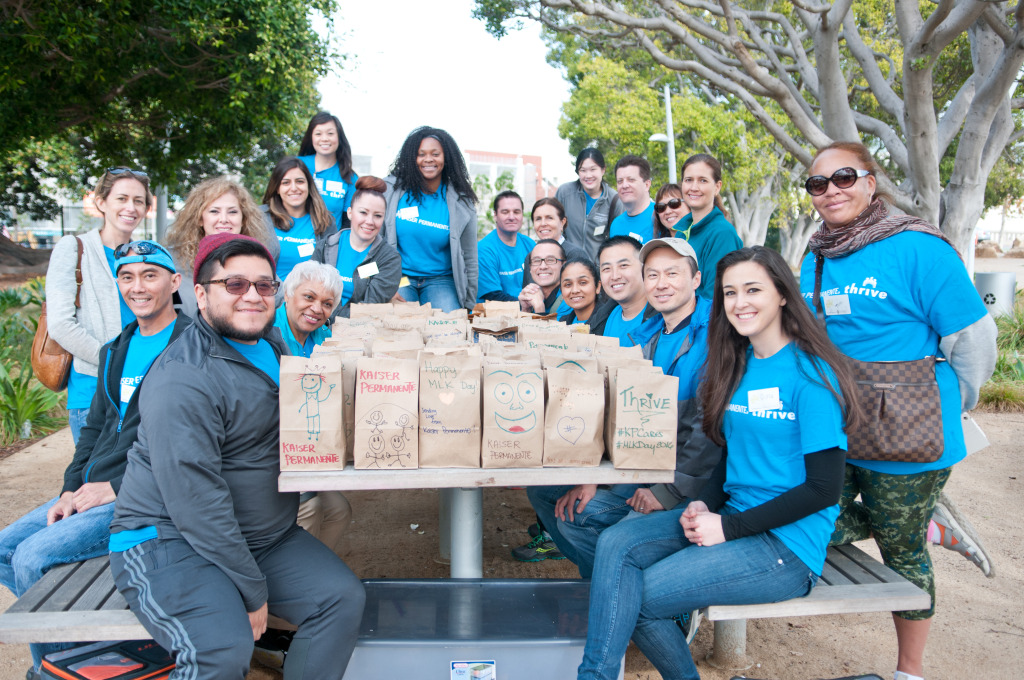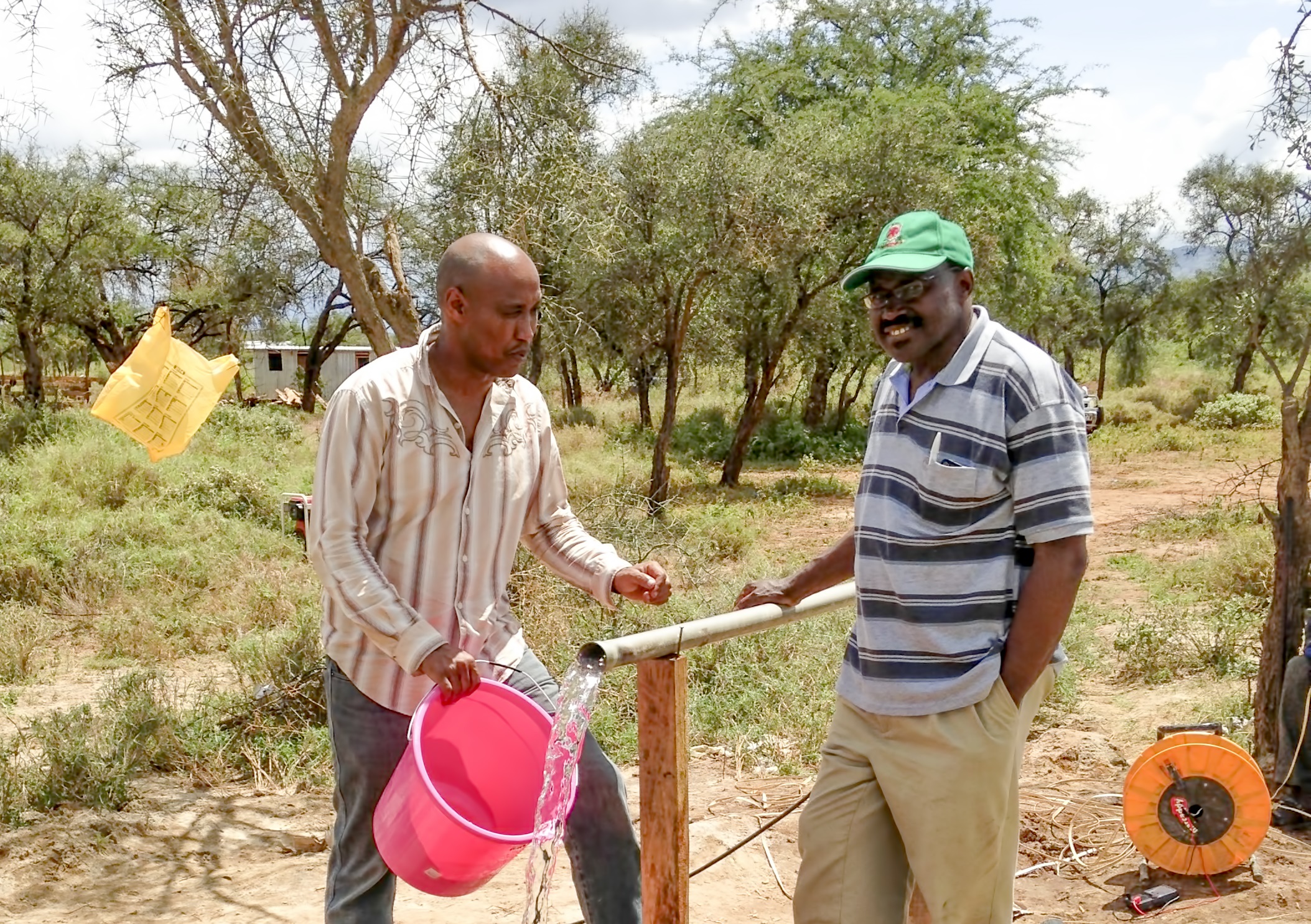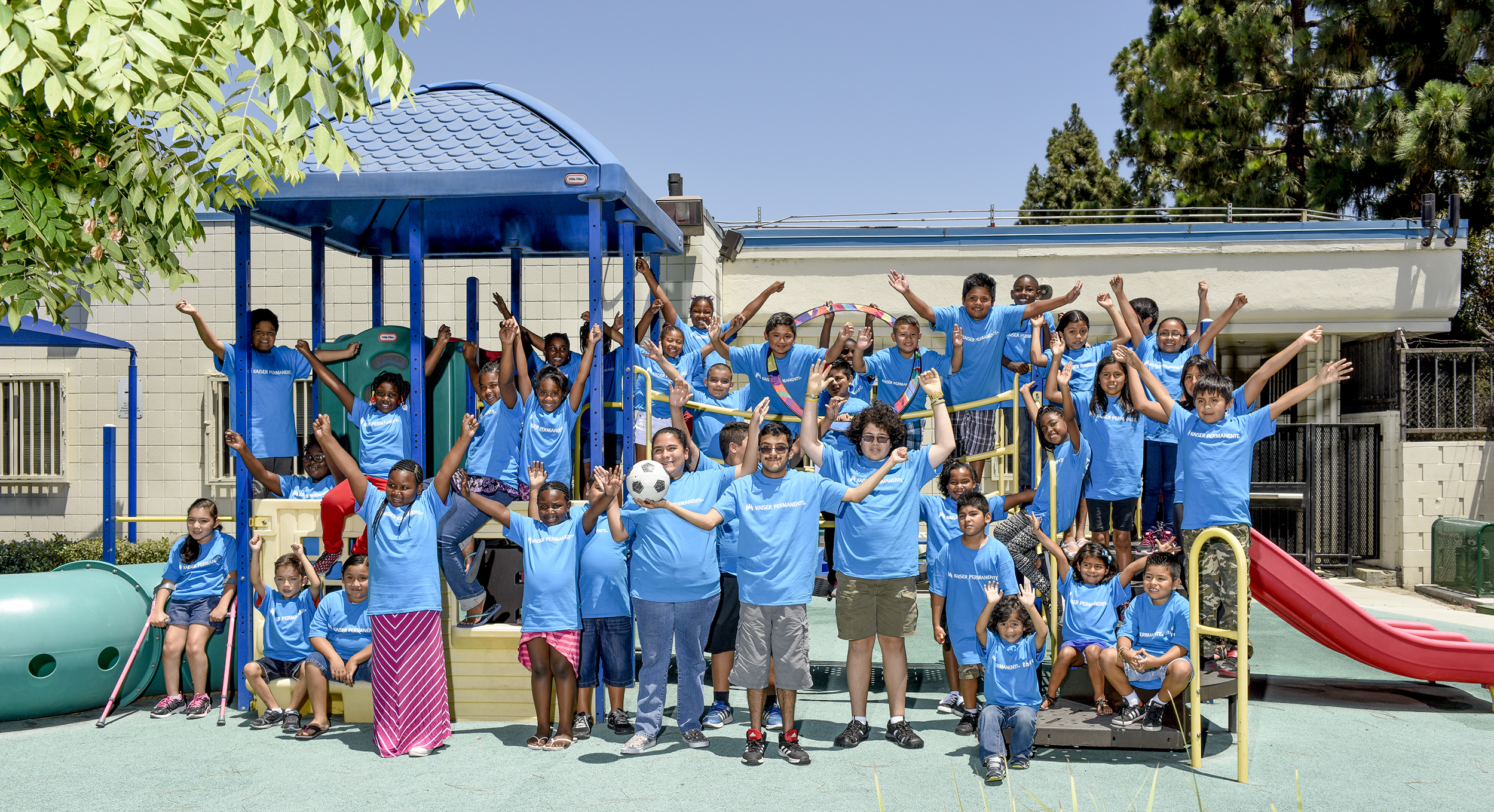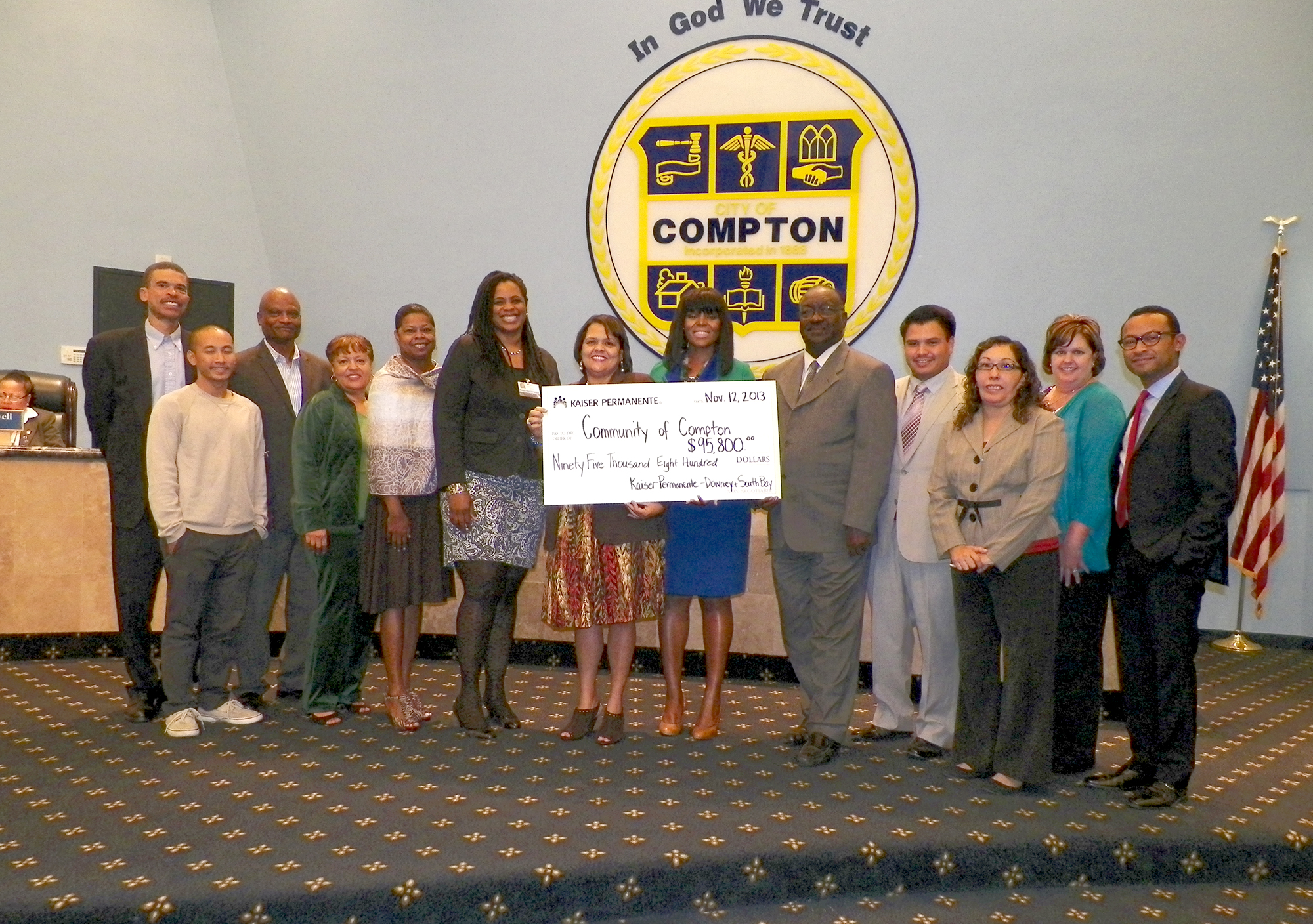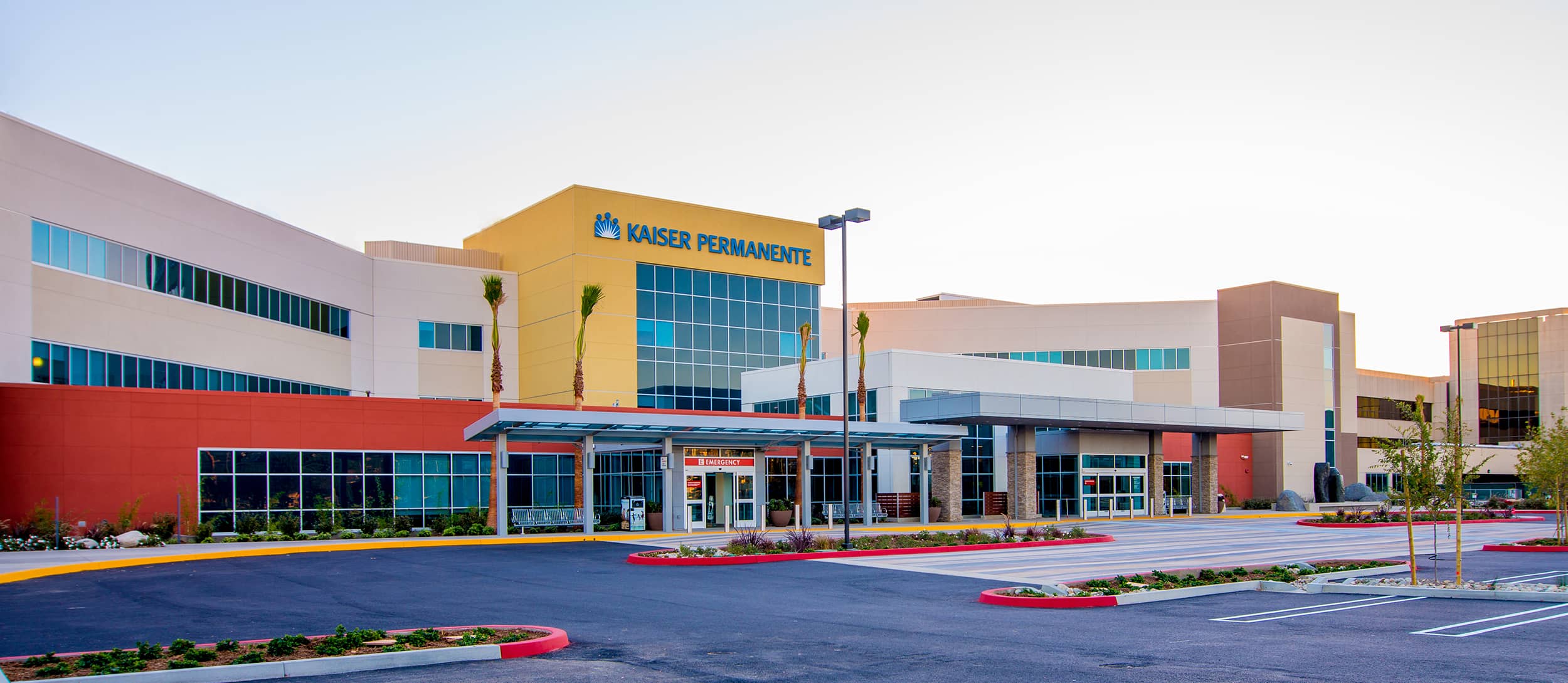
South Bay Medical Center
Community Health is central to our mission because healthy communities are where people thrive. Like our approach to medicine, our work in the community takes a prevention-focused, evidence-based approach. In pursuit of our mission we go beyond traditional corporate philanthropy and grant-making to leverage our internal resources with our physician expertise, clinical practices, health education expertise, and technical assistance. Our commitment to community includes a robust engagement process that lifts the voice of community members and highlights priority health needs in our 2022 Community Health Needs Assessments (CHNA). Through this process, Southern California Kaiser Foundation Hospitals identified urgent social and economic factors that negatively impact community health.
Based on the CHNA findings, the 2022 Implementation Strategy (IS) Plans of Southern California Kaiser Foundation Hospitals apply a health equity lens to outline our commitment to invest, partner, and drive change to improve the health of individuals in communities we serve. While each Kaiser Foundation Hospital IS plan is unique to its service area, the high-level focus areas and strategic priorities we aim to address across Southern California in partnership with community organizations are listed below:
Housing: Safe and secure housing is essential for the health of individuals and families. Example measures include home ownership and homelessness, housing affordability, quality, and cost burden.
Mental and Behavioral Health: Mental & behavioral health affects all areas of life, including a person’s physical well-being, ability to work and perform well in school, and to participate fully in family and community activities. Example measures include access to mental health care, poor mental health and stress, and suicide and deaths of despair (Note: there is a separate need category for substance use).
Income and Employment: Economic opportunity provides individuals with jobs, income, a sense of purpose, and opportunities to improve their economic circumstances over time. Example measures include poverty and unemployment rates, and income inequality.
Access to Care: Access to comprehensive, quality health care services is critical for ensuring quality of life. Example measures of access include health care coverage and uninsurance, access to oral health and specialty care, and birth outcomes.
Structural Racism: Structural racism refers to the normalization and legitimization of an array of dynamics-historical, cultural, institutional and interpersonal-that routinely advantage whites while producing cumulative and chronic adverse outcomes for people of color. It is reflected in health disparities and inequities by race.
Food Insecurity: Food insecurity occurs when people do not have enough resources to meet their basic needs, including having enough food to eat to lead an active, healthy life. Example measures include accessibility of retail food outlets, SNAP enrollment, and living in food-insecure households.
Across these areas, we work to inspire and support people to be healthier in all aspects of their lives, and build stronger, healthier communities. In addition to dedicating resources through Community Benefit, we also leverage substantial additional assets that improve community health, including our healthcare workforce volunteerism.
At Kaiser Permanente, we believe in using the full range of our organization’s assets to improve the health of the communities we serve. We regularly gather data and seek input from our community partners and members to inform our investments and to guide the development of strategies that can make long-term, sustainable change and improve health. We are pleased to share our 2022 Community Benefit Year-End report for the Kaiser Foundation Hospital in South Bay that summarizes our efforts and highlight specific strategies and resources we deployed to respond to the prioritized health needs in the community.
Note: While Kaiser Permanente is committed to addressing these needs, local medical centers will strategically and carefully invite community partners to apply for funding in order to address needs that align with the local Implementation Strategy Plans, which may have some variations of the strategic priorities listed above. Please scroll down to view the areas that are currently being funded in this medical center.
Recent Related News
- May 22, 2018 – Kaiser Permanente Announces $200 Million Impact Investment, Partners with U.S. Mayors and CEOs
- May 14, 2018 – Leadership Winner Recognizes Health Depends on Economic Opportunities
- May 14, 2018 – Kaiser Permanente Joins de Beaumont Foundation as National Partner in CityHealth Initiative
South Bay Medical Center Grants Program
The Kaiser Permanente South Bay Medical Center 2023 Community Benefit Grants are awarded through a “By Invitation Only” grant process.
Kaiser Permanente South Bay Medical Center is currently focused on supporting the following health needs and related strategic priorities. Reviewing this area will help to ensure that your proposed grant project is aligned with these priorities.
If you would like to apply for Grant or Sponsorship Funding for a broader service area in Southern California or Nationally, visit this site for more information and to apply.
If you would like to apply for a local event sponsorship, such as: special fund raising events (luncheons, recognition dinners); conferences; symposia; public policy briefings; and health education forums; visit this site for more information and to apply.
Current Grant Funding Priorities
Kaiser Permanente South Bay Medical Center is currently focused on supporting the following health needs and related strategic priorities. Reviewing this area will help to ensure that your proposed grant project is aligned with these priorities. Grant funding priorities are organized by 1) local priority health needs based on findings of the 2019 community health needs assessment; and 2) National Common Areas of Focus and enterprise strategies (see below). In addition to local grantmaking priorities, applicants must indicate in the project narrative: a. statement of alignment to a National Common Areas of Focus for the category in which you are applying; b. statement of how your organization addresses structural racism and marginalization through its board and staff composition, administering programs and services, and/or operations.
- Enhance the infrastructure and capacity of service providers to serve individuals at risk or experiencing homelessness
- Support the infrastructure and capacity of community organizations, schools, and clinics to improve access to quality mental health care
- Support programs that improve high school attendance, achievement, and/or graduation for students of color in low-income areas
- Enhance career pathways by partnering with workforce development organizations to develop and implement job training and placement programs, including pre-apprenticeship programs
- Support programs offering middle school and high school students career exposure (especially health care careers) and mentorship
- Provide access to comprehensive health care and to coverage for low-income individuals and families who do not have access to public or private health coverage
- Provide high-quality medical care services to Medicaid participants who would otherwise struggle to access care
- Core support to safety net organizations, allowing these organizations to implement initiatives appropriate for the needs of their population (e.g., expansion of specialty care, providing more virtual care for nonsurgical specialties)
- Support improved access and quality of medical care for persons experiencing homelessness
- Support community-based organizations that address social health needs and coordinate care
- Support Black, Indigenous, People of Color (BIPOC)-led organizations that advance best practices for preventing and/or mitigating the impacts of ACEs, toxic stress, and trauma for communities disproportionately experiencing inequities
- Support grassroots and advocacy organizations and initiatives
- Support to Black, Indigenous, People of Color (BIPOC)-led organizations, with an emphasis on Black-led
- Incorporate racial and health equity analysis throughout planning, implementation, and execution of strategies under each prioritized health need
- Prioritize geographic communities and high need populations (across race and ethnic groups, seniors, youth, formerly incarcerated, veterans, LGBTQ, etc.) under each health need
- Support organizations that distribute food such as medical tailored meals, prepared food, produce, or other food and meals to school children, families, and those in underserved communities
- Support organizations that increase enrollment in programs that extend food dollars such as in the Supplemental Nutrition Assistance Program (SNAP), Special Supplemental Nutrition Program for Women, Infants and Children (WIC), and federal school meal programs
Applicant Eligibility
To be eligible for a Kaiser Permanente South Bay Medical Center Community Health grant, an applicant organization (or fiscal agent), must have operations in California and be one of the following types of nonprofit organizations:
- 501 (c)(3) tax-exempt organization with a 509 (a) designation indicating that the organization is not a private foundation
- A local, state, or federal government agency, including any of its subdivisions that perform substantial governmental functions
In addition, organizations must:
- Provide direct services to disadvantaged and/or underserved populations that address funding priorities identified in the Kaiser Permanente South Bay Service Area Community Health Needs Assessment
- Provide services within the geographic boundaries of Kaiser Permanente South Bay Service Area, which includes the communities of: Carson (90745, 90746, 90747), Compton (90220), Gardena (90247, 90248, 90249), Harbor City (90710), Hawthorne (90250), Hermosa Beach (90254), Lawndale (90260), Lomita (90717), Long Beach (90802, 90803, 90804, 90806, 90807, 90810, 90813, 90814, 90815, 90822), Los Angeles (90061), Manhattan Beach (90266), Palos Verdes Estates (90274), Rancho Palos Verdes (90275), Redondo Beach (90277, 90278), San Pedro (90731, 90732), Santa Catalina Island (90704), Signal Hill (90755), Torrance (90501, 90502, 90503, 90504, 90505, 90506), Wilmington (90744). Priority will be given to communities of significant health need highlighted in bold.
Kaiser Permanente South Bay Medical Center Community Health does not consider funding requests from international, social, recreational clubs, or for the following:
- Sports teams and tournaments (e.g., golf tournaments, tennis events, walks, and runs)
- Individuals
- Religious purposes
- Partisan political activities
- Endowments or memorials
- Re-granting purposes to other organizations
Kaiser Permanente South Bay Medical Center will not consider requests from organizations that discriminate based on gender, age, economic status, educational background, race, color, ancestry, national origin, sexual orientation, gender expression, gender identity, or marital status in your programs, services, policies and administration. In addition, Community Health grants will not be awarded for activities, events, or programs organized or solely sponsored by alcohol, tobacco, pharmaceutical companies, or companies that produce firearms.
We generally do not provide grants for academic research, capital campaigns, event sponsorships (including community health fairs), or political campaigns.
Grant Award Parameters and Considerations
The aim of this program is to ensure equity is at the forefront of our community health partnerships from development to evaluation. In keeping with this goal, priority will be given to:
- Organizations whose executive leadership (Board members and CEO/ED) and senior staff composition reflect the communities served.
- Have staff and leadership with lived experience regarding the priority health need the organization seeks to address.
- Organizations, collaboratives, or programs supporting and partnering with high need populations (racial/ethnic groups with health and economic disparities, seniors, youth, formerly incarcerated, veterans, LGBTQ, etc.) and geographic communities (listed above in bold).
- Community-based programs, projects, or collaboratives that traditionally have not received funding due to lack of capacity.
- Organizations and programs utilizing screening tools and adopting interventions to address each health need that are culturally appropriate and reflective of the communities we serve.
- Requests should only include support for specific community-based programs, projects, or services closely aligned with Kaiser Permanente South Bay’s health needs and strategic priority areas.
- Community-informed capacity building, core operating support, and programmatic funding requests will be considered.
Other Considerations:
- Grant objectives are specific, measurable, action-oriented, and time-defined.
- Grant outcomes clearly indicate what will change as a result of the proposed request.
- Grant budget includes other sources of funding (may include individual donations) and demonstrates sustainability.
- Population to be served is clearly defined and high priority based on ethnic and geographic disparities, low-income and high health risks.
- Repeating grant applicant has a positive reporting and evaluation history of previous grant awards.
Grant Awards: Approximately 18 organizations may be awarded up to $20,000 over a 12-month grant period.
To view your submitted application click here.
Grantmaking Contact
By the Numbers
Looking for CHNA Reports?
You can find all the CHNA Reports organized by Year and Medical Center in the Community Health Needs Assessment (CHNA) Section of the Service Areas Page.






